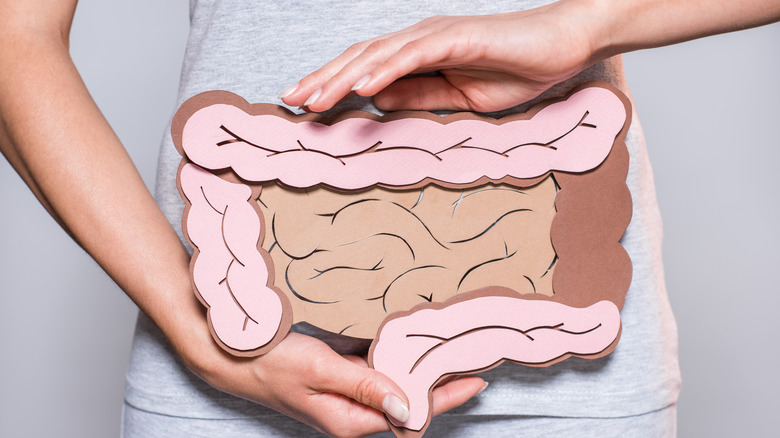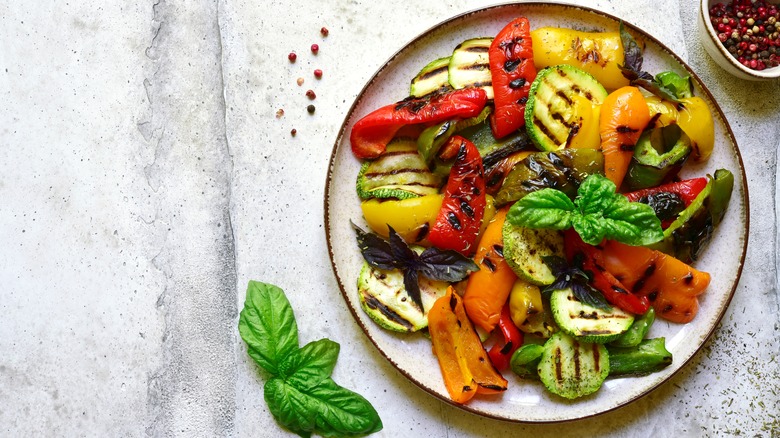Will A Vegan Diet Lower Your Risk Of Colon Cancer?
There are a lot of benefits to eating a vegan diet. With a varied, balanced diet that doesn't include meat or products that come from animals (like eggs and milk), veganism can reduce inflammation and arthritis pain, improve cardiovascular health, and help with weight loss and management, per Healthline. A vegan diet is generally high in nutrients and relies heavily on vegetables, fruits, seeds, beans, and whole grains. Whether you've already adopted a diet that is free from animal products or you're interested in exploring veganism for the first time, knowing the pros and cons is key to making an informed decision.
The National Health Service (NHS) defines veganism as a diet that is heavily focused on plants and plant-based foods. Vegetables and whole foods provide a lot of essential nutrients and vitamins that our bodies need to thrive. But when it comes to critical health conditions like cancer, can a vegan diet help protect you — or can it work against you?
In multiple studies, researchers have discovered that refraining from consuming animal products and instead opting for a vegetarian or vegan diet can, in fact, reduce the risk of developing certain cancers, according to Mayo Clinic Health System. There are many ways to fashion a vegan diet to reduce your risk of cancer, including colon cancer. Here are the components of a vegan diet that can protect against colon cancer.
Eat foods rich in phytochemicals
Plant-based, vegetarian, and vegan diets tend to include significant whole foods with an emphasis on fruits, vegetables, seeds, beans, and legumes. These contain high amounts of phytochemicals, which are chemical compounds that provide the body with protective factors to keep cells healthy and free from damage (via Mayo Clinic Health System). This is significant because maintaining cellular health can reduce cancer risk.
Phytochemicals are also the factors in plant-based foods that lead to a reduction in inflammation, arthritis, and chronic pain. Two types of phytochemicals provide the most benefits: antioxidants, which can neutralize cells so that they don't erratically multiply in the way in which cancer is developed, and carotenoids, which are fat-soluble compounds that improve both eye and heart health in addition to reducing cancer risk. The foods richest in these phytochemicals include spinach, kale, carrots, cabbage, brussels sprouts, broccoli, cantaloupe, celery, apricots, apples, tomatoes, lentils, and bok choy, per Stanford Medicine.
Fiber is another component of a vegan diet that has been found to reduce the risk of developing colon cancer (via Cleveland Clinic). The rationale is that waste traveling through the colon moves at a faster pace when fiber speeds up the digestive process and makes it easier for the gastrointestinal tract to break down consumed fare. Including a variety of these foods can reduce your risk. However, it's always a good idea to reach out to your doctor before starting any new diet.


